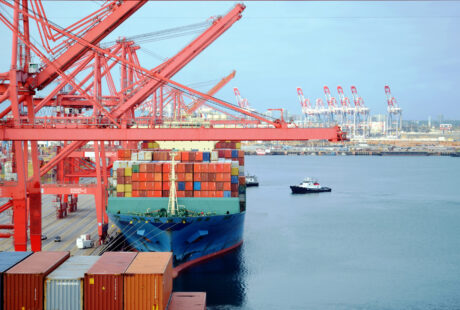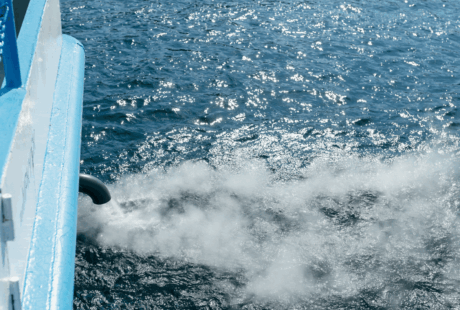Recent IPCC reports can leave us in no doubt about the seriousness of the climate crisis and just how far the shipping industry has to go to align with the #ParisAgreement’s objective of keeping global heating below 1.5 degrees.
The International Maritime Organisation (IMO) has a target of halving emissions by 2050 when we now know that this needs to be achieved 20 years earlier, with full decarbonisation occurring as near to 2040 as possible and certainly no later than 2050.
But ship emissions continue to grow and so far at least the IMO has failed to agree on anything that will lead to absolute emission reductions from the sector. A recently agreed short-term measure contains a level of ambition that was deliberately calibrated to be indistinguishable from business as usual and will do nothing to reduce ship climate emissions in the short-term. The current negotiations on a mid-term measure are focusing on market-based instruments and low carbon fuel standards, neither of which are likely to contribute to significant emission reductions before 2030. And talks on black carbon, which is a potent short-lived climate forcer responsible for 20% of shipping climate impact, have also failed to deliver.
Under the current proposals the shipping industry will have completely exhausted its 1.5 degree carbon budget by 2029! So just as we start the roll out of new fuels and market based measures start to bite we could already have lost the climate battle.
Emission reductions in the short-term are critical to the success of our battle to stop global heating. If we are not to cross the thresholds identified in the Paris Agreement and send the global climate into a potentially disastrous and uncontrollable phase we must bring ship emissions down steeply in the next few years. The reports of the IPCC make this absolutely clear, yet the shipping industry, IMO and many states continue to believe that ships can emit business as usual out to 2030. This has to change.
And climate heating emissions are far from shipping’s only problem. Ships are the principal source of underwater noise pollution which undermines the health and resilience of marine life. The ropes and paints used on ships contribute to the presence of microplastics in the ocean. Illegal but routine dumping of wastes is still widespread and the accidental loss of cargoes, oil spills, garbage waste and ship fires, all lead to pollution, habitat loss, and coastal degradation. Beyond the ships themselves the dredging and expansion of channels and ports to accommodate ever larger vessels is a significant climate and biodiversity problem. Action on climate must go hand in hand with action to protect the oceans and biodiversity. A healthy ocean can play a big part in tackling the climate crisis.
This is not a moment for minor incremental adjustments in the activities of the shipping industry.
We face a genuine and globally life threatening situation and nothing short of a revolution in the way the industry does business is needed. What happens during the 2 weeks of COP26 in Glasgow and when the IMO next meets later this month in London must be ambitious enough to trigger the urgent and far reaching action to halve ship emissions by 2030 and properly address the industry’s wider environment and biodiversity impacts.
Posted on: 1 November 2021



